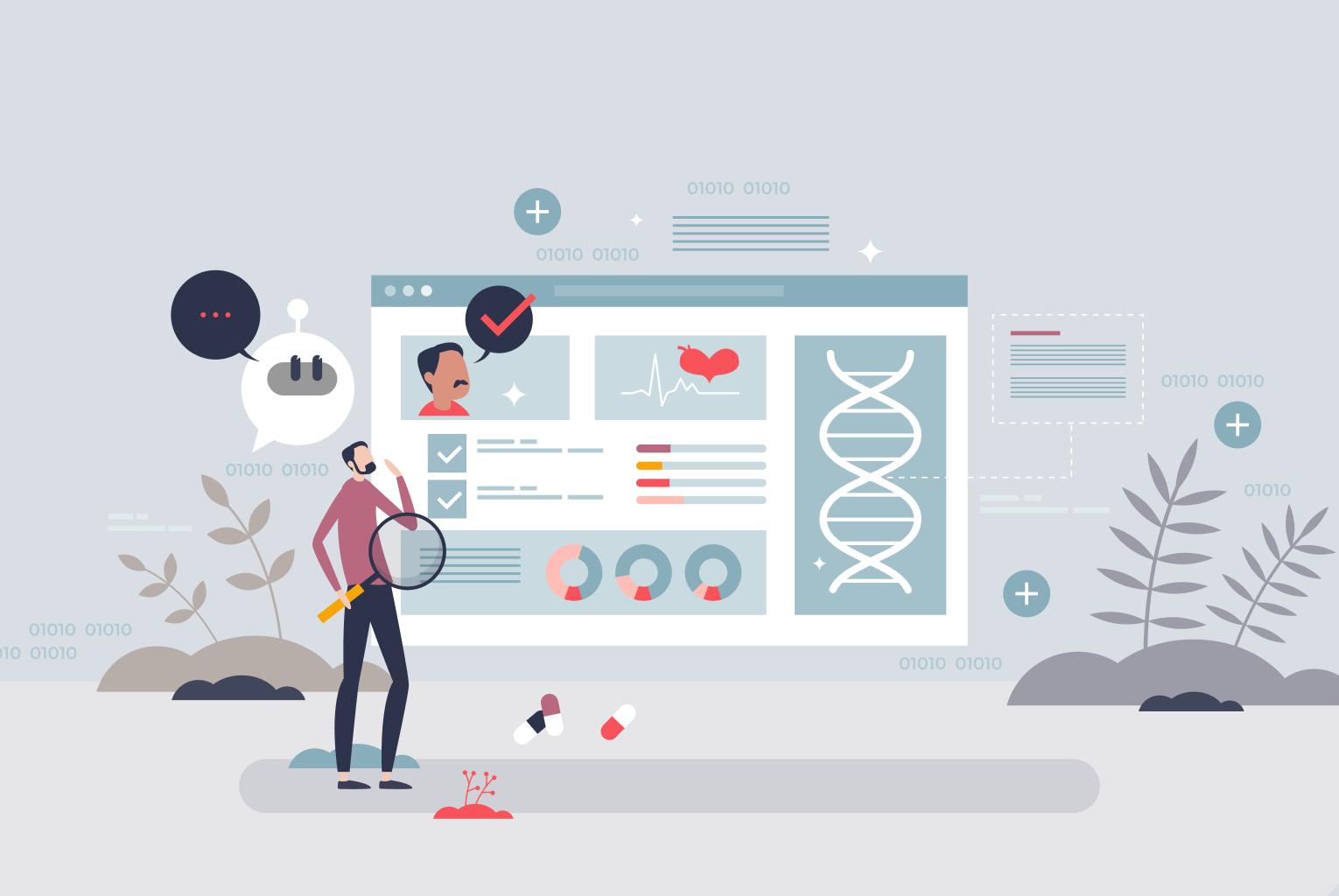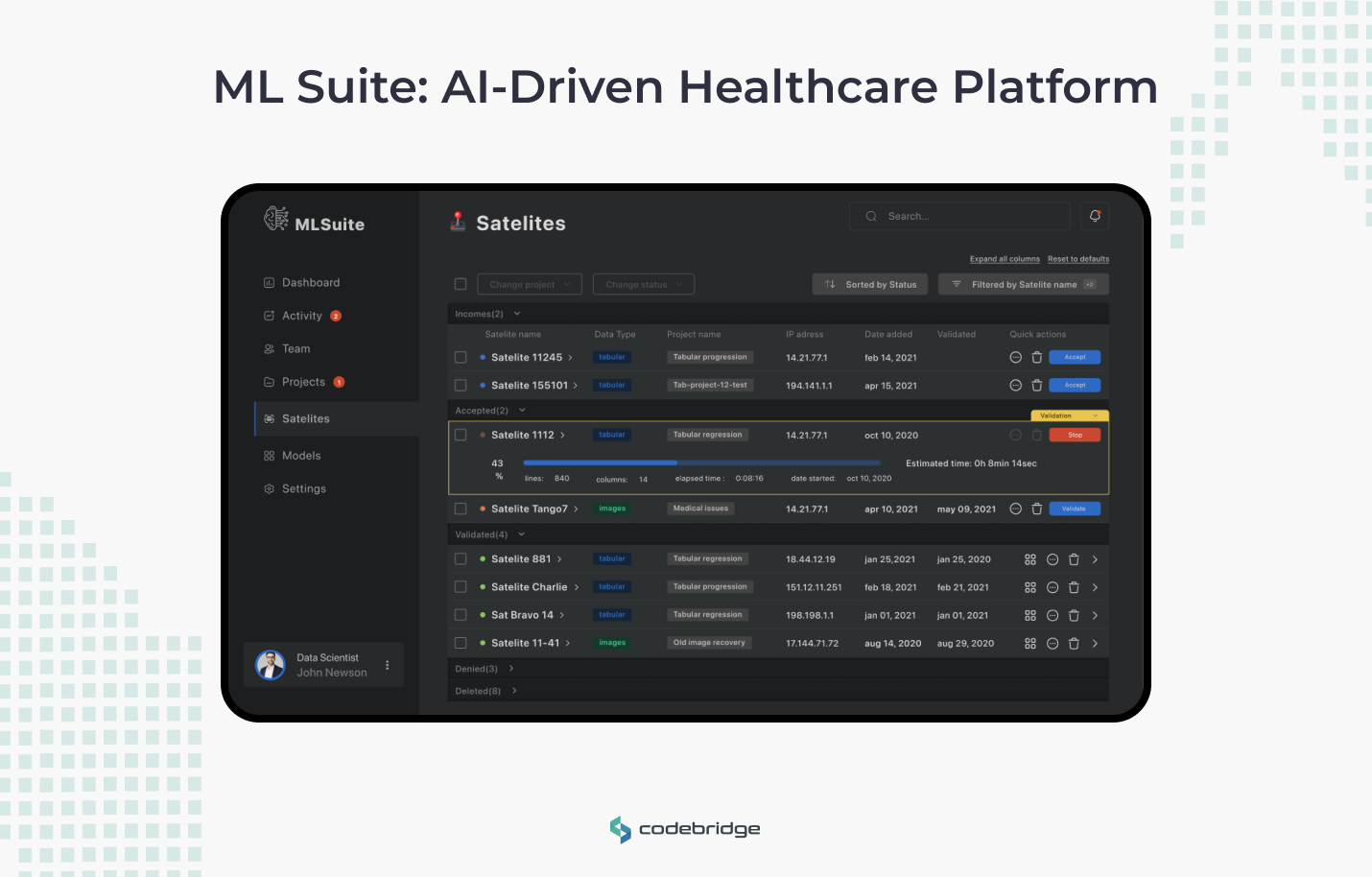From electronic health records (EHR) to telemedicine platforms, the demand for reliable, secure, and scalable healthcare software solutions has never been greater. As healthcare providers seek to improve outcomes, reduce costs, and comply with stringent regulations, the importance of robust software engineering practices tailored specifically for healthcare cannot be overstated.
This article explores the critical role of healthcare software engineering, outlines best practices for building secure and scalable healthcare applications, addresses common challenges, and highlights emerging technologies shaping the future of healthcare software development. Whether you are a healthcare organization, software developer, or technology stakeholder, understanding these principles is essential to delivering innovative solutions that meet healthtech industry standards and improve patient care.

The Importance of Healthcare Software Engineering in Modern Healthcare
Healthcare software engineering is the backbone of modern healthcare technology, enabling the development of applications and systems that streamline clinical workflows, enhance patient engagement, and facilitate data-driven decision-making. The healthcare sector is undergoing a digital transformation, with software solutions becoming integral to everyday operations.
%20(1)%20(1).png)
The adoption of healthcare technology has accelerated rapidly. Nearly all non-federal acute care hospitals in the United States (96%) had adopted certified EHR systems, marking a significant increase from 28%.
These technologies have demonstrated clear benefits, including improved patient safety, enhanced care coordination, and increased access to healthcare services, especially in remote or underserved areas.
How Software Engineering Is Revolutionizing Healthcare Delivery
At its core, healthcare software engineering revolutionizes healthcare delivery by automating complex processes, enabling real-time data access, and facilitating seamless communication among healthcare providers and patients. Software solutions such as EHRs, patient portals, clinical decision support systems, and telehealth platforms improve accuracy and speed in diagnosis and treatment.
Software engineering techniques ensure that healthcare applications are designed with reliability, usability, and security in mind. This leads to reduced medical errors, enhanced patient outcomes, and more efficient healthcare delivery models. For example, telemedicine platforms allow patients to consult with doctors remotely, reducing hospital visits and minimizing exposure risks during pandemics.
The Role of Software Engineers in Healthcare System Innovation
Software engineers in healthcare are not just coders; they are innovators who bridge the gap between clinical needs and technological capabilities. They collaborate with healthcare professionals to understand workflows, regulatory requirements, and patient safety concerns to design software that truly supports healthcare delivery.
These engineers apply best practices in software architecture, security, and usability to create systems that are scalable and maintainable. Their work enables integration with medical devices, interoperability across healthcare systems, and compliance with healthcare regulations, ensuring that technology serves as a reliable foundation for patient care.

Key Best Practices in Healthcare Software Engineering
Developing healthcare software requires adherence to rigorous standards and best practices that address the unique demands of the healthcare industry. These practices ensure that healthcare applications are not only functional but also secure, compliant, and scalable.
Ensuring Compliance with Healthcare Regulations (HIPAA, GDPR)
Compliance with healthcare regulations such as HIPAA (Health Insurance Portability and Accountability Act) in the U.S. and GDPR (General Data Protection Regulation) in the EU is a fundamental aspect of healthcare software engineering. These regulations mandate strict controls over patient data privacy, security, and consent management.
Best practices include implementing robust data encryption, access controls, audit trails, and secure authentication mechanisms. Software engineers must design systems that facilitate compliance reporting and breach notification processes. Regular security assessments and penetration testing are essential to identify vulnerabilities and ensure ongoing compliance.
Creating Scalable and Secure Healthcare Systems
Healthcare applications must be designed with scalability and security at their core. Scalable healthcare software can handle increasing volumes of patient data, users, and transactions without performance degradation. This is critical as healthcare organizations grow and adopt new digital services.
%20(1)%20(1).png)
Secure healthcare systems protect sensitive patient information from unauthorized access and cyber threats. Best practices involve adopting multi-layered security architectures, including network security, application security, and data security. Incorporating secure coding standards, continuous security monitoring, and incident response plans helps maintain system integrity.

Challenges in Healthcare Software Engineering and How to Overcome Them
Developing healthcare software presents unique challenges that require specialized strategies to address.
Addressing Data Security and Privacy Concerns
Protecting patient data is paramount in healthcare software development. The sensitive nature of health information makes it a prime target for cyberattacks. Ensuring secure healthcare systems involves implementing end-to-end encryption, role-based access controls, and secure data storage practices.
Adopting privacy-by-design principles ensures that data protection is embedded throughout the software development lifecycle. Regular staff training on security best practices and compliance requirements further mitigates risks.
Overcoming Integration Issues in Healthcare Software Development
Healthcare environments often rely on legacy systems and diverse technologies, making healthcare technology integration complex. Seamless integration is vital for interoperability, enabling different systems to communicate and share data effectively.
Strategies to overcome integration challenges include using standardized protocols such as HL7 and FHIR, implementing middleware solutions, and designing APIs that facilitate data exchange. Engaging stakeholders early to map workflows and data dependencies ensures smoother integration.
Healthcare Software Development Lifecycle: From Design to Deployment
The healthcare software development process follows a structured lifecycle tailored to meet healthcare industry demands, ensuring quality and compliance at every stage.
The Role of Testing in Healthcare Software Engineering
Testing is a critical phase in healthcare app development that validates functionality, security, and performance. Given the high stakes in healthcare, rigorous testing methodologies such as unit testing, integration testing, system testing, and user acceptance testing are essential.
Automated testing tools can accelerate regression testing, while manual testing ensures usability and workflow validation. Compliance testing verifies adherence to regulatory standards.
Continuous Improvement and Maintenance of Healthcare Solutions
Healthcare software requires ongoing maintenance and updates to address emerging security threats, regulatory changes, and evolving user needs. Continuous improvement practices involve monitoring system performance, collecting user feedback, and deploying timely updates.
Proactive maintenance reduces downtime, enhances user satisfaction, and ensures that healthcare solutions remain effective and compliant over time.
Emerging Technologies in Healthcare Software Engineering
Innovations in technology are reshaping the possibilities of healthcare software, driving more intelligent, efficient, and patient-centric solutions.
How AI and ML Are Shaping the Future of Healthcare Apps
Artificial intelligence (AI) and machine learning (ML) are transforming healthcare app development by enabling predictive analytics, personalized treatment recommendations, and automated diagnostics. AI-powered tools analyze vast datasets to uncover insights that improve clinical decision-making and operational efficiency.
These technologies enhance patient monitoring, early disease detection, and resource allocation, contributing to better outcomes and cost savings.
ML Suite: Empowering Healthcare Professionals with AI-Powered Insights
The ML Suite exemplifies cutting-edge healthcare software engineering by delivering a next-generation platform that empowers healthcare professionals with AI and ML capabilities. It structures massive healthcare data into an intuitive platform accessible to both technical and non-technical users.

Key achievements include a user-friendly architecture, a clean visual interface, seamless data integration, and AI-driven analytics. The platform has improved decision-making confidence and accelerated data interpretation, demonstrating how AI innovation can unlock clinical and operational value. Read more about ML Suite in our case studies.
Blockchain for Secure Patient Data Management
Blockchain technology offers promising solutions for enhancing data security and integrity in healthcare. By providing decentralized, tamper-proof ledgers, blockchain ensures that patient records are immutable and transparently managed.
This technology facilitates secure data sharing among authorized parties while maintaining patient privacy, supporting compliance, and reducing fraud risks.
Final Thoughts
The field of healthcare software engineering is critical to building reliable, secure, and scalable healthcare solutions that improve patient care and operational efficiency. Adhering to best practices — such as regulatory compliance, robust security measures, scalable system design, and continuous improvement — is essential for success.
Healthcare organizations and technology providers must embrace expert healthcare software solutions to navigate the complexities of this industry and leverage emerging technologies effectively. By doing so, they can deliver innovative applications that meet the highest standards and drive meaningful improvements in healthcare delivery.
At Codebridge, we specialize in crafting custom healthcare software that aligns with industry regulations, enhances performance, and delivers measurable outcomes. Whether you're launching a new digital health platform or modernizing legacy systems, our team is ready to support your journey.
Contact us today to explore tailored healthtech solutions and discover how we can help you turn complex healthcare challenges into scalable, secure innovations.
FAQ
Why is reliability critical in healthcare software engineering?
Reliability is essential because healthcare software supports sensitive operations like patient data management, diagnostics, and clinical decisions. Any system failure can lead to medical errors or compliance issues. Reliable software ensures accuracy, continuity of care, and patient safety.
What are the key reliability best practices for healthcare software systems?
Key best practices include rigorous testing, redundancy planning, real-time monitoring, secure data handling, and compliance with healthcare regulations. Using stable architectures and adopting automated testing also help ensure consistent performance in high-stake environments.
How can healthcare startups improve software reliability during development?
Startups can improve reliability by implementing continuous integration, using validated frameworks, and conducting frequent code reviews. Early performance testing and strict validation against real clinical workflows also reduce risks and improve system stability before launch.
What role does compliance play in building reliable healthcare software?
Compliance ensures that software meets required standards for data security, privacy, and operational integrity. Regulations such as HIPAA, GDPR, and local medical device laws define how systems must store, process, and transmit data. Following these rules strengthens reliability and builds user trust.
How does redundancy enhance the reliability of healthcare applications?
Redundancy protects against failures by ensuring backup systems take over if primary components fail. This includes database mirroring, server failover clusters, and replicated storage. Redundancy minimizes downtime and guarantees continuous access to critical medical information.
What testing strategies are most effective for ensuring healthcare software reliability?
Effective strategies include automated regression tests, stress testing, usability testing with clinicians, and validation against real patient scenarios. End-to-end testing ensures that every component works flawlessly together. These methods detect issues early and support long-term reliability.
















%20(1).jpg)
